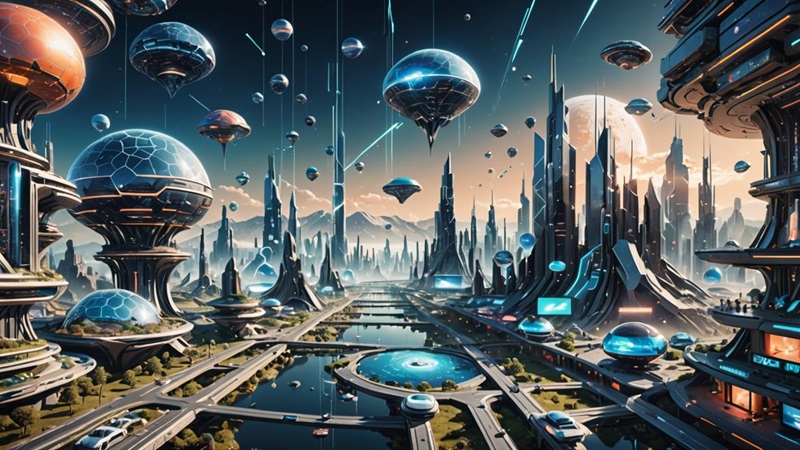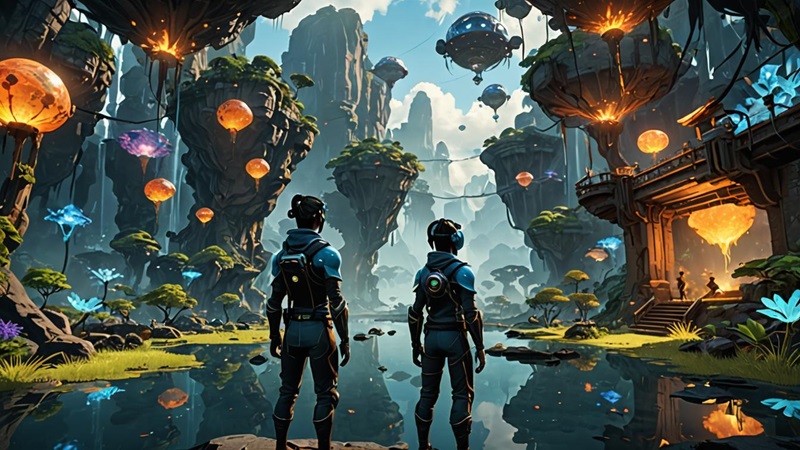What is the Metaverse

The origin and evolution of the Metaverse
The concept of the Metaverse: from fiction to reality
The term “Metaverse” was first introduced in Neal Stephenson’s 1992 science fiction novel Snow Crash.
In this novel, the Metaverse was a 3D virtual space where people projected their digital avatars and interacted in a parallel world.
Although the concept seemed like pure fantasy, technology has advanced rapidly, turning this idea into a concrete possibility.

Starting in the 2000s, video games and online social platforms like Second Life began experimenting with shared virtual spaces, laying the groundwork for the modern concept of the Metaverse.
As virtual reality (VR) and augmented reality (AR) became more accessible, the idea of an interconnected digital universe started to take shape.
The technologies behind the Metaverse
The Metaverse is not a single technology but a convergence of several innovations.
These include virtual reality (VR), augmented reality (AR), blockchain, artificial intelligence (AI), and 5G networks.
These technologies work together to create immersive experiences, complex social interactions, and an interconnected digital environment.

For example, blockchain enables the existence of a decentralized digital economy in the Metaverse, facilitating transactions and ownership of virtual assets.
At the same time, VR and AR transform how users interact with this environment, giving them a sensory and physical presence in the digital space.
The impact and future of the Metaverse
Social and economic implications of the Metaverse
As the Metaverse becomes increasingly integrated into daily life, its social and economic impact is becoming more evident.
In the workplace, the Metaverse promises to revolutionize how we work by creating virtual offices and more efficient remote collaborations.

Education could also greatly benefit from this technology through interactive courses and realistic simulations.
From an economic perspective, the Metaverse is creating new markets and business opportunities.
From selling digital goods, like virtual clothing for avatars, to creating unique experiences like virtual concerts, companies are investing heavily in this emerging space.
Challenge and prospects of the Metaverse
Despite the opportunities it offers, the Metaverse comes with several challenges.
These include issues related to data security, user privacy, and digital addiction.

As people spend more time in the Metaverse, the risk that virtual reality may become more attractive than the physical one increases, potentially leading to social isolation and other psychological issues.
In the future, the success of the Metaverse will depend on how these challenges are managed.
Additionally, the development of global standards and interoperability between different platforms will be essential for creating a healthy and sustainable digital ecosystem.
